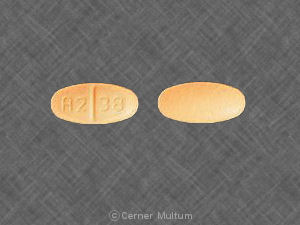Quinaretic Interactions
There are 656 drugs known to interact with Quinaretic (hydrochlorothiazide / quinapril), along with 18 disease interactions, and 3 alcohol/food interactions. Of the total drug interactions, 53 are major, 549 are moderate, and 54 are minor.
- View all 656 medications that may interact with Quinaretic
- View Quinaretic alcohol/food interactions (3)
- View Quinaretic disease interactions (18)
Most frequently checked interactions
View interaction reports for Quinaretic (hydrochlorothiazide / quinapril) and the medicines listed below.
- Aciphex (rabeprazole)
- alendronate
- allopurinol
- alpha-lipoic acid
- alprazolam
- Amaryl (glimepiride)
- amlodipine
- amoxicillin
- AndroGel (testosterone)
- aspirin
- atorvastatin
- Crestor (rosuvastatin)
- Cymbalta (duloxetine)
- Eliquis (apixaban)
- Fish Oil (omega-3 polyunsaturated fatty acids)
- Flomax (tamsulosin)
- furosemide
- levothyroxine
- metformin
- Metoprolol Succinate ER (metoprolol)
- omeprazole
- ranitidine
- Ritalin (methylphenidate)
- simvastatin
- Singulair (montelukast)
- Sotalol Hydrochloride AF (sotalol)
- trazodone
- Vitamin D3 (cholecalciferol)
- vitamin e
- Wellbutrin SR (bupropion)
Quinaretic alcohol/food interactions
There are 3 alcohol/food interactions with Quinaretic (hydrochlorothiazide / quinapril).
Quinaretic disease interactions
There are 18 disease interactions with Quinaretic (hydrochlorothiazide / quinapril) which include:
- angioedema
- bone marrow suppression
- hemodialysis
- hyperkalemia
- hypotension
- anuria
- electrolyte losses
- liver disease
- lupus erythematosus
- renal function disorders
- liver disease
- renal dysfunction
- asthma
- diabetes
- hyperlipidemia
- hyperparathyroidism
- hyperuricemia
- thyroid function tests
More about Quinaretic (hydrochlorothiazide / quinapril)
- Compare alternatives
- Drug images
- Latest FDA alerts (3)
- Side effects
- Dosage information
- During pregnancy
- Drug class: ACE inhibitors with thiazides
Related treatment guides
Drug Interaction Classification
| Highly clinically significant. Avoid combinations; the risk of the interaction outweighs the benefit. | |
| Moderately clinically significant. Usually avoid combinations; use it only under special circumstances. | |
| Minimally clinically significant. Minimize risk; assess risk and consider an alternative drug, take steps to circumvent the interaction risk and/or institute a monitoring plan. | |
| No interaction information available. |
Further information
Always consult your healthcare provider to ensure the information displayed on this page applies to your personal circumstances.


